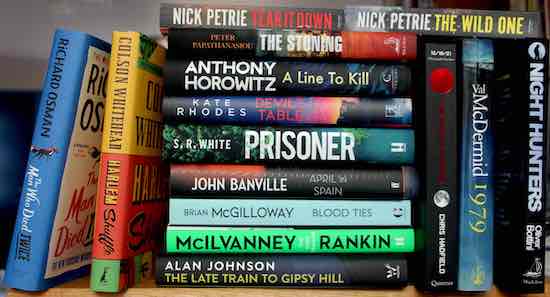Never mind politicians’ weeks – a year seems to be a long time in the crime-fiction universe. Long enough, certainly, to transform expectations completely, if the curious case of Richard Osman is anything to go by. The Pointless presenter and TV format king’s debut was greeted round these parts with… well, not exactly suspicion, but a degree of caution, certainly.
Written in secret, shopped to a quickly gobsmacked publishing industry, and the subject of a fierce and expensive bidding war, it arrived with a lot to prove. And then – the perfect twist in the tale – The Thursday Murder Club turned out to be little short of brilliant. A laid-back, spry, genuinely funny and emotionally tender thriller about four residents in a retirement village who solve cold cases to pass the time, Osman’s wit, craft, and empathy were rewarded with unprecedented sales.
The Man Who Died Twice repeats the trick, and cements Osman’s position among the vanguard of what this kind of storytelling can do at its best. Already his is a crime-fiction brand you’d put up there with the Childs, the Herrons, and the Cravens: you know what you’re going to get, and you know it’s going to be great. Its a joy to spend more time with this group of characters, and with a writer who cares as much for them as he evidently does for his readers.
Anthony Horowitz also brings extensive experience in TV to bear on his crime novels, most notably those cataloguing cases investigated by former copper Daniel Hawthorne. The ingenious and rather daring concept of these books is that Horowitz casts himself as a character in them. With Hawthorne the expert he supposedly turns to when wanting to check some procedural detail for accuracy when writing Foyle’s War or Midsomer Murders, this version of “Anthony Horowitz” is a flat-footed, perpetually off-the-pace Watson to the taciturn Hawthorne’s enigmatic Holmes.
Things get increasingly meta in book three, A Line To Kill, when Hawthorne and Horowitz travel to a literary festival on Alderney to promote The Word Is Murder (the opening book in the series, which exists in our real world) only for the tiny island’s first murder to occur while they’re there. That it’s an expertly crafted and wholly enjoyable mystery is a given: what sets these books apart is the insistent, gentle toying with fact and fiction, the blurring of the boundaries between our world and its imaginary simulacrum, and Horowitz’s evident delight as he continually fiddles with the focus ring on his readers’ lens.
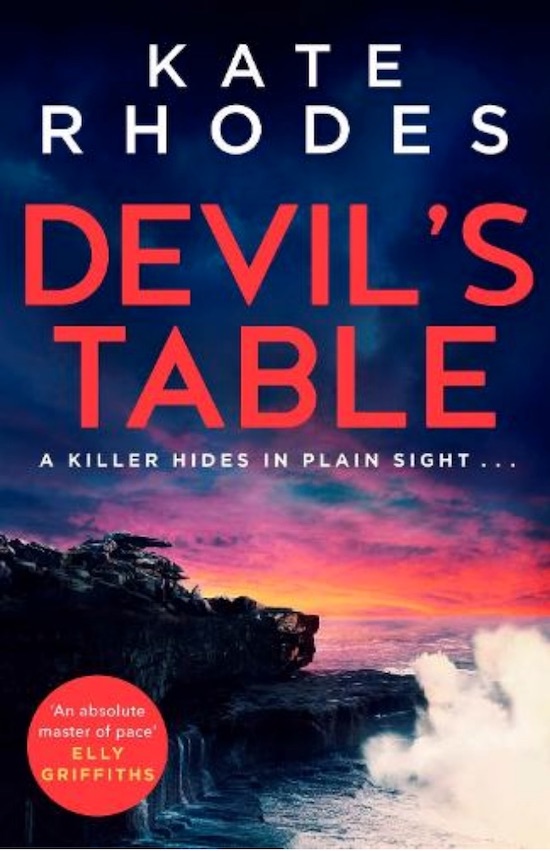
Murder on a small island is hardly a new idea, but Kate Rhodes could still be forgiven for feeling like Horowitz is treading on her territory somewhat. Devil’s Table is the fifth of her series featuring detective Ben Kitto, who has returned to his Scilly Islands birthplace after a spell working undercover in the Met only to find the archipelago has become the murder capital of the western world. Rhodes is a careful, precise and intuitive writer who has chosen to narrate these books in the present tense, and (for the most part) from inside Kitto’s head – an exacting format which must be hellish difficult to pull off – yet each of the books flows like water around her plots’ artfully jagged rocks. The landscapes and communities are evoked vividly and used to consistently excellent effect, Rhodes simultaneously imbuing characters and situations with alluring beauty while gently and implicitly reminding readers of the compromises required to live life full-time on a rock in the middle of a raging sea.
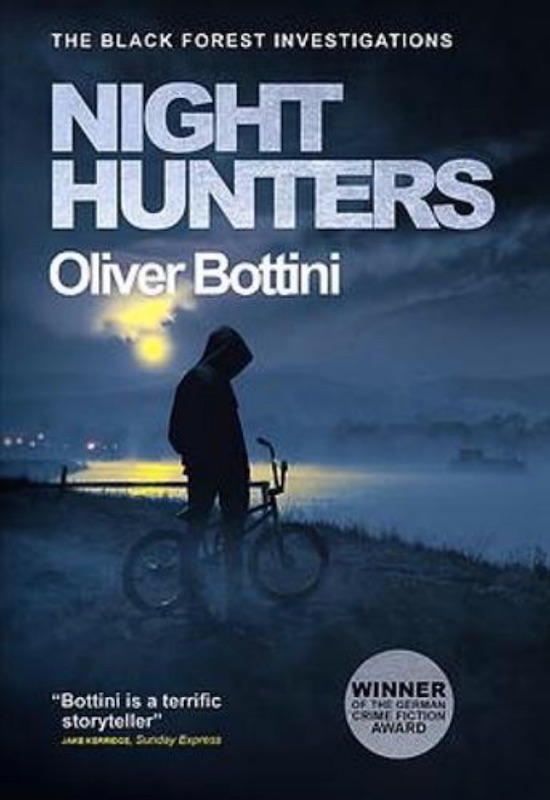
Another kind of isolation is evoked by Oliver Bottini in his Black Forest-set series, the fourth instalment of which, Night Hunters (translated by Jamie Bulloch), has Franco-German police inspector Louise Boni crossing the Rhine (and the border) as a missing-person case becomes complicatedly deadly. If Bottini sold pencils, he’d stock everything from 8B to 6H; just when you think there couldn’t be a more subtle gradation in the shade of grey being deployed, he finds another one you’ve not seen before. Every character is tested, and few turn out to be what they first appear.
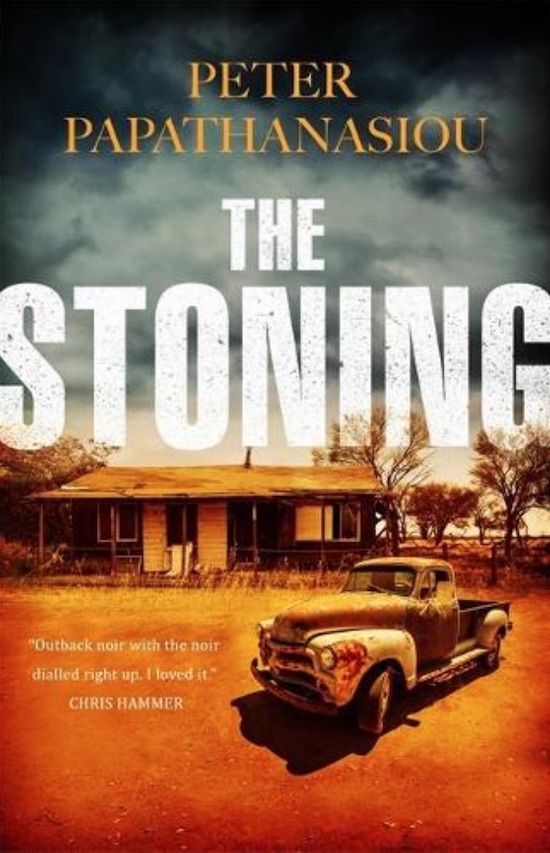
Remote communities aren’t just a northern-hemisphere thing, of course. In crime-fiction terms, Australia is the new Scandinavia in the wake of Jane Harper and Chris Hammer, fans of whom would be well advised to pick up new books by S.R. White and Peter Papathanasiou. The latter’s debut, The Stoning, is drier than a Martian canal, hotter than a smelting forge: the investigation into a Biblical execution in a poverty-ravaged outback town finds city-based cop George Manolis battling drunken incompetence, racial hatred, and decades of state-sponsored dysfunction. Papathanasiou writes unsparingly, confidently, and compellingly. His book is desperately bleak but possessed by a savage beauty.
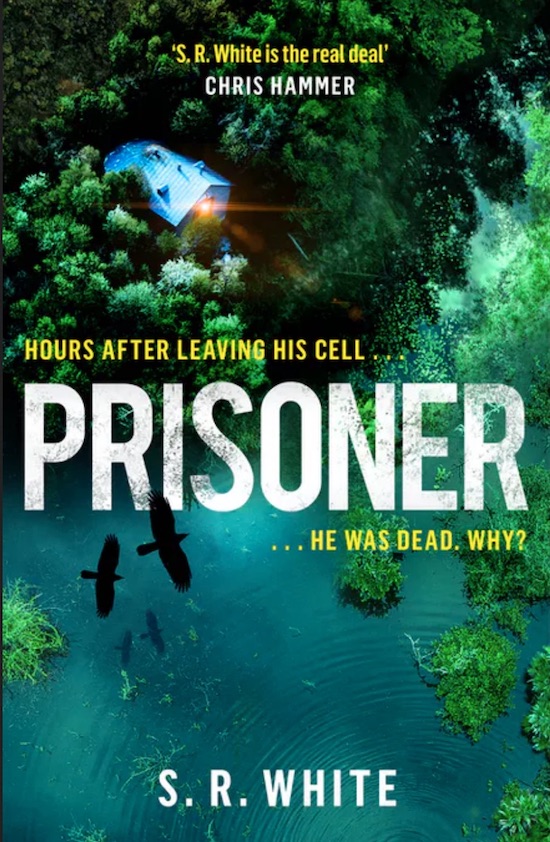
White takes a slightly different tack in Prisoner. In this part of rural Australia, it rains heavily enough to wash footprints and tyre tracks away from the crime scene, and as a former UK police officer, his focus on procedure and interview-room tactics is an immediate point of differentiation from the majority of his contemporaries. This second novel is outstanding, a tightly knit cast of credible, distinctive characters brought to life with sharp, clear, incisive lines. There’s been some superb crime writing published already this year but if there was a prize for the ten pages most likely to be mistaken by the reader for a punch in the guts, chapter twenty-four would be way out in the lead.
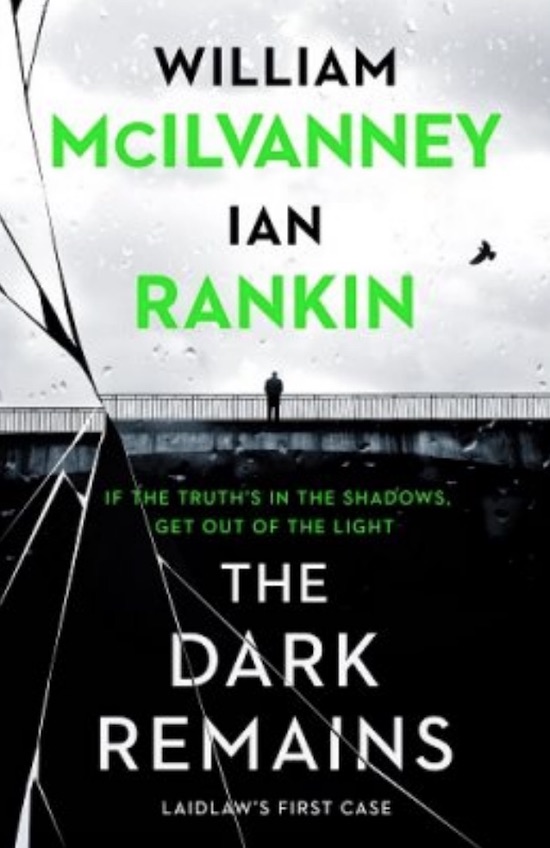
It’s also a boom time for so-called ‘Tartan Noir’, headline news being the appearance of The Dark Remains, the final novel by the acknowledged instigator of the form, William McIlvanney. The book was unfinished when McIlvanney died in 2015, and has been completed by Ian Rankin, an avowed fan who has long said his John Rebus was inspired by McIlvanney’s Jack Laidlaw. The Dark Remains is a prequel to McIlvanney’s Laidlaw trilogy, and is set in an early 70s Glasgow whose inhabitants would have told you precisely where you could get tae if you tried to tell them their city would soon become the European Capital of Culture. The reader will surely find it impossible to see the joins between Rankin’s work and McIlvanney’s, though they’re unlikely to be pausing long enough to look for them through the condensation-soaked windows on the buses Laidlaw prefers to take between showdowns and the fug of cigarette smoke that attends every significant conversation.
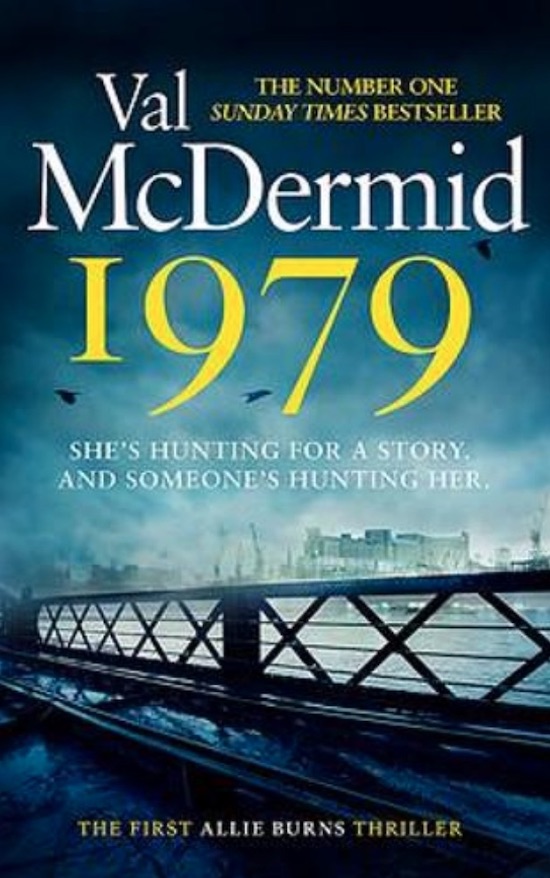
The first Laidlaw book gets a brief, impressed appraisal from Allie Burns, a Glaswegian journalist created by Val McDermid in the first of a new series. While it can be unhelpfully reductive to scour fiction in search of clues to the life of the author, in 1979, it’s clear McDermid has drawn deeply on her own formative experiences in a Glasgow newsroom, and on elements of the life she must have lived outside it. This is recognisably the same world McIlvanney was writing about, but seen through a woman’s eyes: lazy, reflexive sexism and homophobia the constant, nagging undertow that has McDermid’s characters swimming hard just to stay afloat. Whenever you see, hear, or read McDermid being interviewed, she’s generous, supportive, and encouraging of others, and you sense from these pages that those characteristics, surely already deeply ingrained, were sharpened and strengthened back in the day through experiences all too similar to some of those Burns goes through here. The book is therefore at once a beautifully constructed time-capsule of a novel, and an inspirational and empowering story of how self-belief and friendship can help make a life worth living. Oh, and it’s a pretty great crime novel too – but you knew that already.
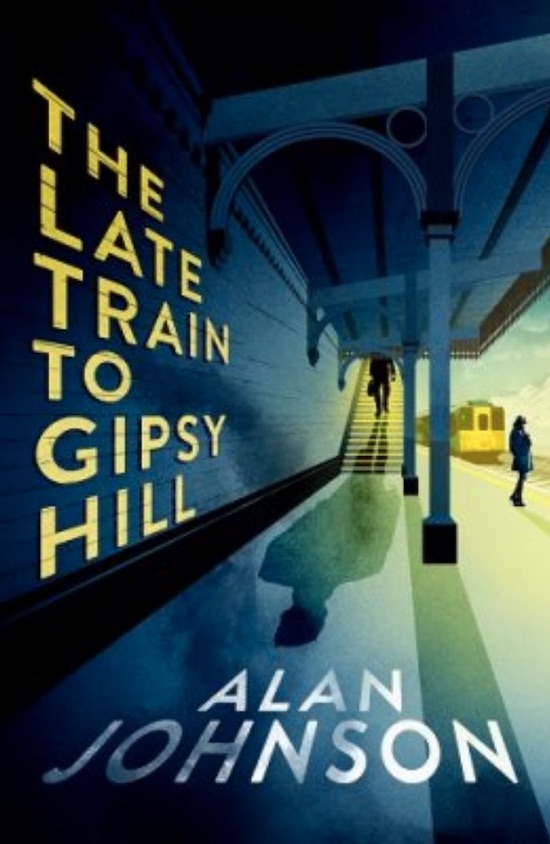
All her years at the top of this game makes McDermid’s re-emphasis of the wisdom of the maxim about writing on what you know all the more powerful. That it remains sage advice is underlined by a couple of other new books from experienced authors but first-time novelists, both rather more famous for stuff other than writing. Former Home Secretary Alan Johnson laces the plot of The Late Train To Gipsy Hill with ripped-from-the-headlines ideas that could easily have crossed his desk in the form of police reports or security-service briefing papers. This is a tale of polonium poison and Russian organised crime that plays out within a lucid, watchful evocation of south London bedsitland. Johnson writes with an easygoing sense of calm, and reassuring patience. For all that the plot gets geopolitically convoluted, you’re always rooting for his likably unprepossessing, reassuringly down-home protagonist.
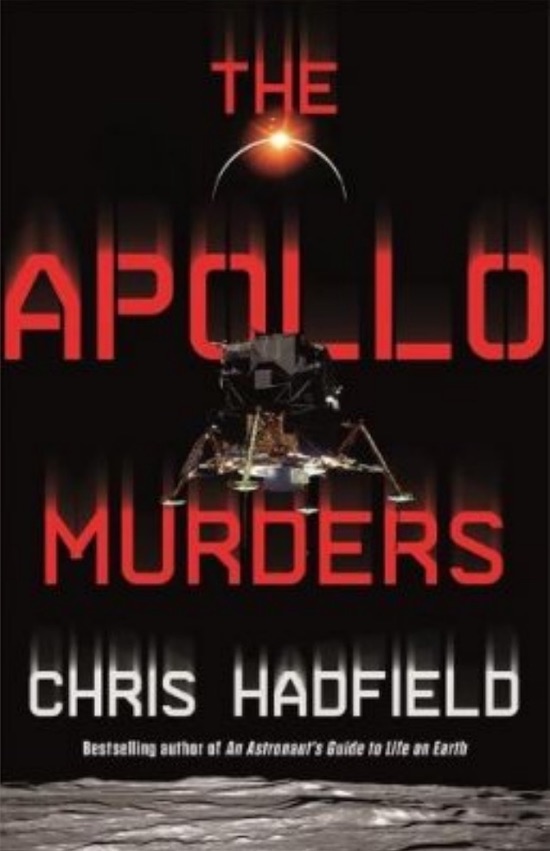
Former Space Shuttle commander Chris Hadfield does not pass up the opportunity his experience affords him to ensure his first crime thriller is, quite literally, out of this world. The Apollo Murders is as dizzying and exhilarating as a journey into orbit. You can tell from the care and attention to every layer of detail that it’s written by the kind of highly trained, methodical, process-oriented individual almost genetically predisposed to become first a military test pilot and then an ice-for-blood spacefarer. Yet it’s in the parts that could have been written from life where the book is at its most supple, driven and gripping. The Saturn V launch sequence is a remarkable piece of writing, as rich in atmosphere and detail as the account of the Apollo 11 launch in Michael Collins’ memoir Carrying The Fire. But even as he insists on almost flawless historical accuracy, Hadfield has great fun with the ‘what if…?’ elements of his story, which imagines Richard Nixon un-cancelling Apollo 18 and launching it as a secret military mission to disable a (real) Russian spy satellite.
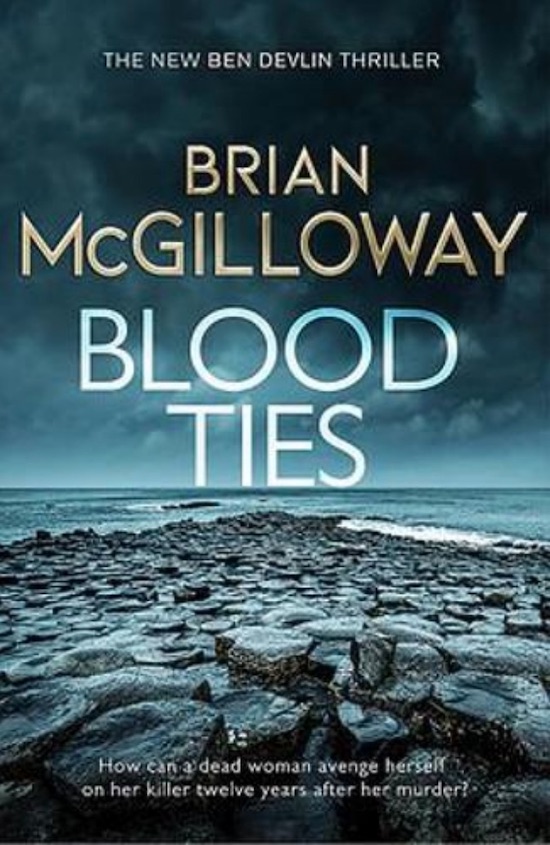
A quick mention for a few paperbacks arriving round about now. Books four, five, and six in Nick Petrie’s consistently excellent series about former soldier Peter Ash are finally out in the UK, in beautiful covers to match the British versions of the first three (from designer Ben Ainslow). Tear It Down, The Wild One, and The Breaker find Ash progressively better managing the “white static” of his PTSD, and pitch him through the kind of adventures that make laudatory comparisons to Jack Reacher both inevitable and unavoidable. Publication schedules look to have caught up, with book seven, The Runaway, due to be published on both sides of the Atlantic in January. Brian McGilloway’s Blood Ties has followed a much more timely path to the paperback shelves – just as well for a story set at the dawn of the COVID age, and which crosses the newly contested frontier separating the UK and the EU on the island of Ireland. McGilloway’s style is unadorned, his narrative both plausible and propulsive, his characters complicated, conflicted, and convincing.
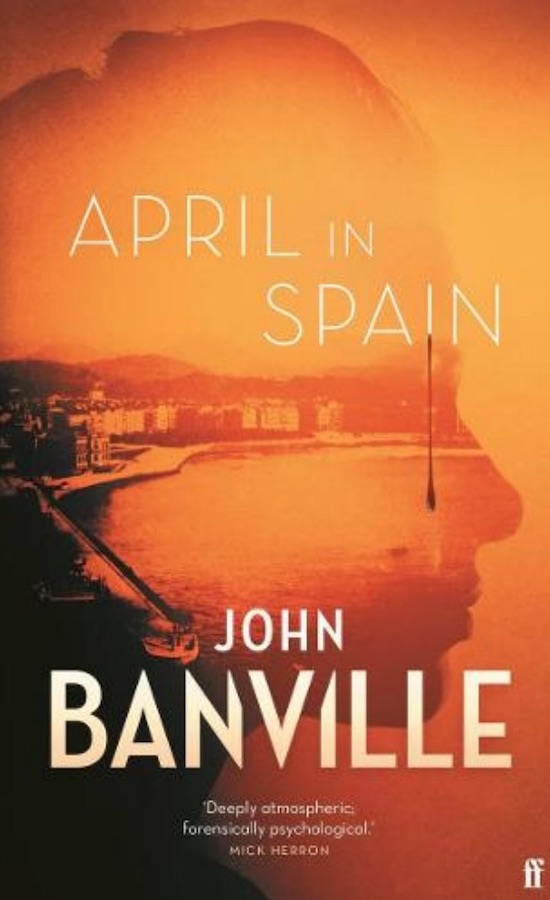
Our final two selections this time out answer a couple of questions that we probably didn’t think to ask before now. The first is: can one book be part of two different series from different authors? And the second is: what is crime fiction, anyway? April In Spain is billed as the sequel to John Banville’s acclaimed Snow, because it involves the same detective – St John Strafford – who handled that country-house murder case in last year’s lauded hit. But it’s also the eighth book in the series about Dublin pathologist Quirke – first name unknown – which the Booker winner has been publishing since 2007 under the pseudonym Benjamin Black. The action, when it arrives, is blistering, brutal, shocking, and crafted with the precision of a watchmaker, but the lion’s share of this book is taken up with head-to-head conversations, the reader dropping in and out of the different characters’ minds, seeing and hearing things from multiple perspectives at once. A key scene in a Dublin hotel lounge, stretched out over three sinuous, lace-ribbon-light chapters of writing of the very highest order, will live long in the memory. A masterpiece of tension and release, the balance of the conversation is kept in constant motion like a ball bearing in a wooden labyrinth. The weight of the issues at stake for the participants only becomes clear to the reader on the book’s final page. Magnificent.
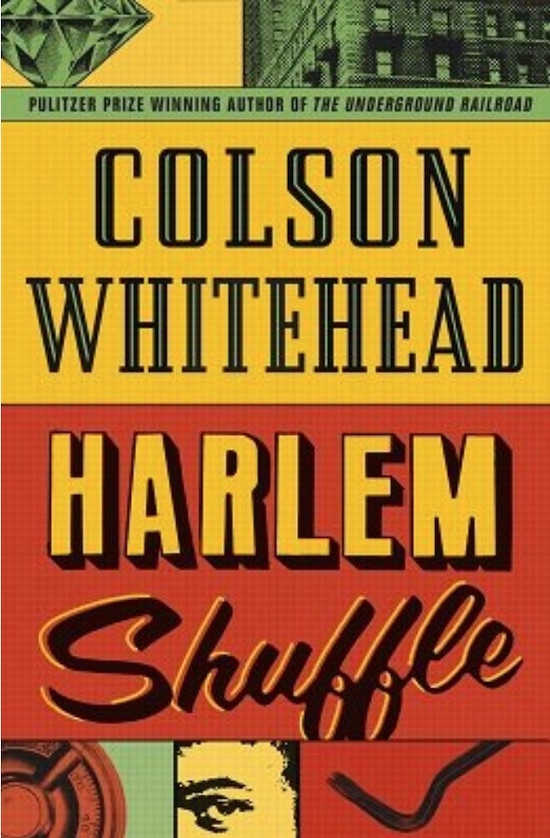
Much has been made of Colson Whitehead’s ‘first crime novel’, Harlem Shuffle, though a lot of it seems to imply that the double-Pulitzer winner is somehow lowering his elevated capabilities by concerning himself with such generic subject matter. But Whitehead is a writer who’s made a career out of ignoring pigeonholes. His back catalogue includes satire, historical meta-fiction, post-apocalyptic zombie horror, and a fantastic memoir about playing poker. In any case, the novels that won him global acclaim are about slavery and child abuse: crimes by any rational definition.
You might just as easily argue for Harlem Shuffle as a historical novel, its three novella-length sections recreating a bustling uptown New York in the early 60s as the city and its people – and by extension the country – go through the birth pains of a new age. It’s also a tale of political and social mobility – or the lack thereof for those many denied either or both – with furniture-shop owner Ray Carney finding his ambitions blocked by prejudice of various stripes and the determined defence of entrenched, and unearned, advantage. It can also be read as allegory, the closing third’s setting depressingly redolent of our own, supposedly more enlightened, time (though Whitehead has said he completed the first draft barely hours after the murder of George Floyd, so the correlation with the recent past that many readers will make was not intended at the point of writing). That it can be all of these things, and more besides, at once, is down to Whitehead’s consummate skill and his enviable and richly enjoyable lightness of touch. His characters aren’t just recognisable, you feel like you know them. Heavy topics get discussed in conversational, relatable terms. The writing is wry and warm and inviting, but it consistently and insistently forces you to ask difficult, searching questions. Like in Banville’s book, pretty much every sentence is one to savour. Call it crime fiction, call it literary fiction, call it whatever you want – it’s the work of a writer in the middle of one of those hot streaks you hope will never end.

